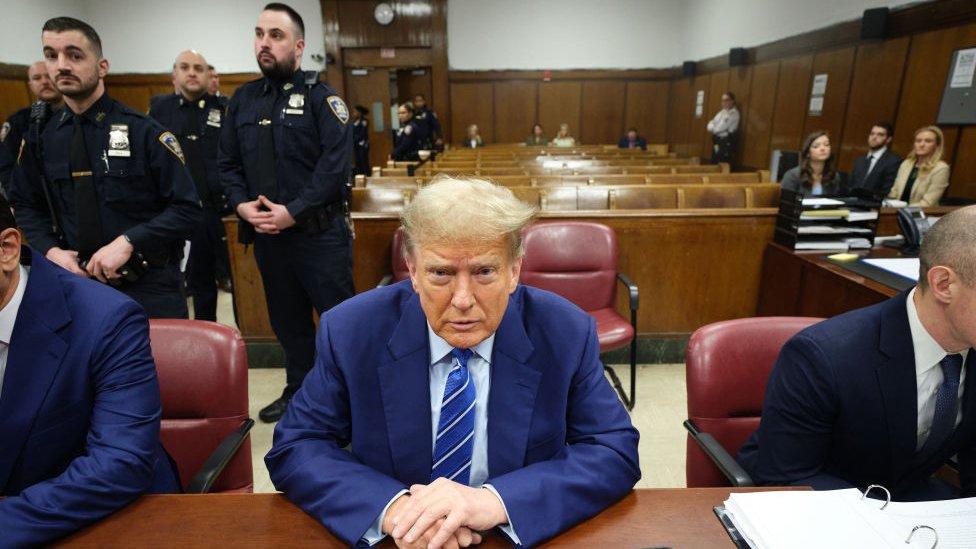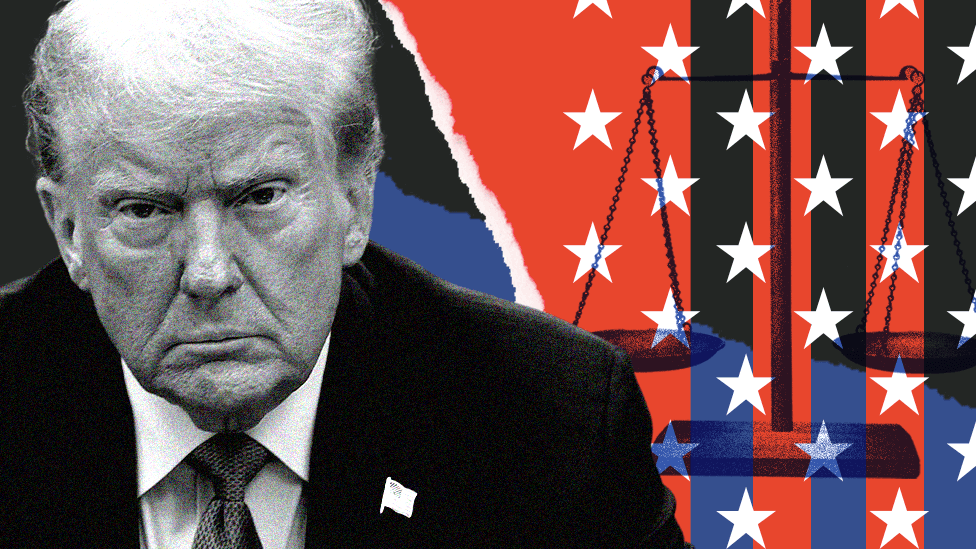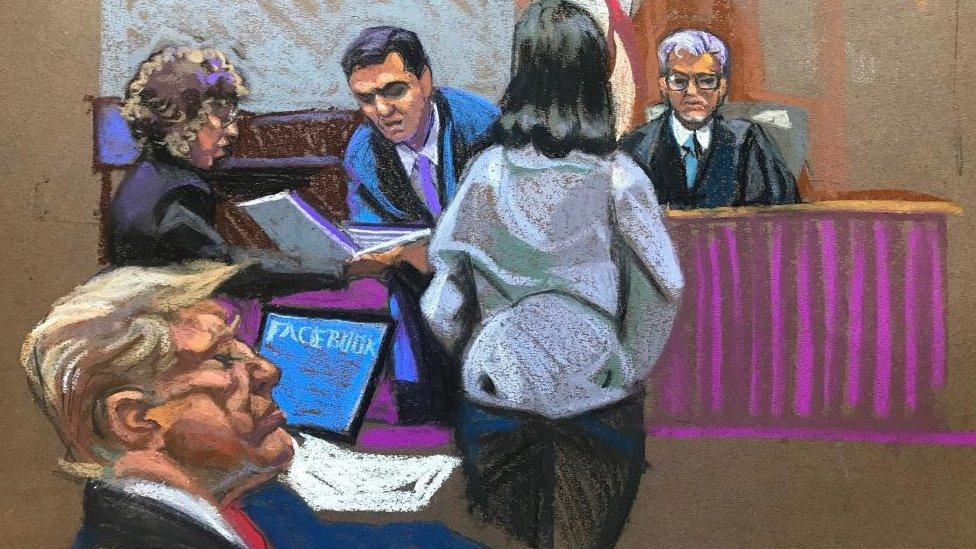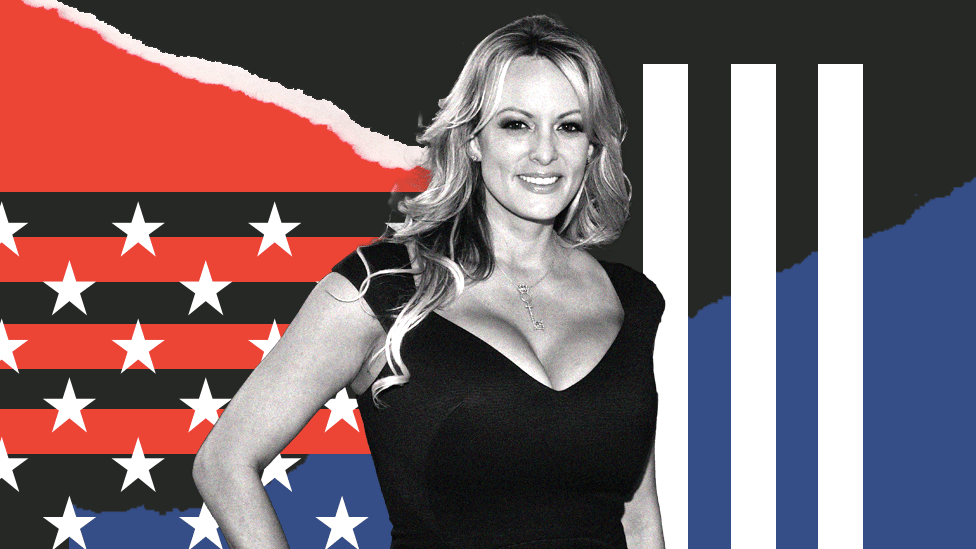Trump due back in court as hunt for jurors goes on
- Published

Donald Trump is due to return to a New York City courtroom Thursday, after a rest day in his historic trial.
The process of picking 12 jurors plus six alternates is under way. Seven have been picked so far out of hundreds.
In the first criminal trial of a former US president, Mr Trump is accused of falsifying business records. He denies any wrongdoing.
If he testifies, he could face questions about recent defeats in other cases.
Manhattan District Attorney Alvin Bragg, who is leading the case, says he will ask about Mr Trump's legal losses to attack his credibility.
A court filing made public on Wednesday shows that Mr Bragg intends to question Mr Trump about his New York civil fraud trial defeat, in which he was handed a nearly half-billion-dollar financial penalty.
Mr Trump has denied the allegations against him in that case and is appealing the ruling.
Prosecutors would also question Mr Trump about jury verdicts finding him liable for defamation and sexual abuse of the writer E Jean Carroll - another issue he is appealing.
Judge Juan Merchan has not determined whether Mr Bragg's office will be allowed to raise these points during cross-examination, should Mr Trump choose to testify in the hush-money case.
Mr Trump has previously said he would have "no problem" doing so.
He has pleaded not guilty to 34 felony counts of falsifying business records linked to a $130,000 (£104,000) payment that was made to adult film star Stormy Daniels in 2016.
He has also denied having an affair with Ms Daniels. Prosecutors say Mr Trump directed his former lawyer to pay Ms Daniels to stay quiet during his successful presidential run that year.
It will be up to the jury to decide whether he is innocent, guilty, or if a consensus cannot be reached.
But in New York City - the place where Mr Trump built his fame and real estate empire - the task of finding 12 jurors with no opinion of the former president has proven complex.
On the opening day of trial, the first batch of candidates was immediately halved when dozens raised their hands to indicate they could not be impartial about Mr Trump.
Even prosecutors and Mr Trump's lawyers acknowledged in court that the task was nearly impossible. But prospective jurors were excused for a variety of reasons, from being bias, to fears of missing a wedding.
Their responses were elicited by lawyers who read from a pre-prepared questionnaire being used to filter out prospective jurors' biases.
Despite the challenge, there are hopes the selection process could conclude this week, allowing opening statements to begin as soon as Monday.
- Published14 April 2024

- Published17 April 2024

- Published23 May 2024
